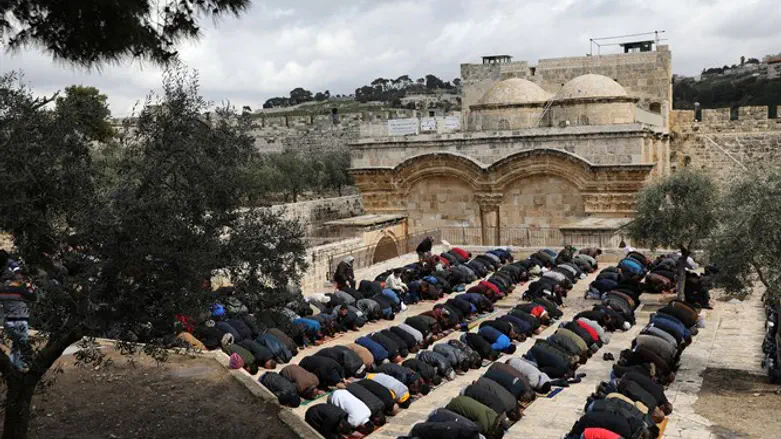
The Jerusalem Police on Sunday evening detained four suspects who tried to enter the Golden Gate, also known as the Gate of Mercy or Bab al-Rahma in Arabic, on the Temple Mount.
An Israeli court earlier this year ordered the closure of the Golden Gate where the Waqf had illegally erected a mosque.
The ruling followed riots and clashes occurred on the Temple Mount as Muslims forcibly tried enter the closed Golden Gate compound, which has been closed off for the past 16 years, since it was discovered that those running the site were connected to the Hamas terror organization.
The Regavim movement, which petitioned the Supreme Court against the illegal activities of the Waqf to build a mosque at the compound, said that the state's conduct in recent months has led to the current situation in which the Waqf has de facto established another mosque on the Temple Mount illegally and in violation of the status quo and Jewish rights.
The state’s last response to the petition included an explanation by the police that, in recent weeks, the Waqf has continued its illegal work, despite the closure order issued by the Jerusalem Magistrate's Court.
The works included the installation of a speaker for the muezzin, new prayer mats, lighting chandeliers and an electric panel.
Judge Meni Mazuz, who gave the state 90 days to respond to the petition, recently rejected Regavim's request for an interim injunction against the construction work. The hearing on the petition was scheduled for the beginning of July, but was postponed at the last minute until the end of September - almost six months from the date the petition was filed.
Yachin Zik, director of activities at the Regavim movement, said that "when the state itself does not implement the closure order that the court issued at the request of the state, when the justices of the Supreme Court postpone the hearing on the petition that we submitted by many months, it is no wonder that the message received by the Waqf is that they can do whatever they like, without having to be accountable before the law."